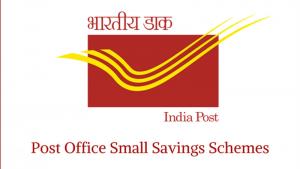Types of Life Insurance Policies
In order to offer the best coverage, life insurance plans come in two categories. The first is pure life insurance and the second one is a perfect blend of insurance & investment components.
In order to know what insurance plan is suitable for an individual, it’s important to know what types of life insurance policies are offered in the Indian insurance market.
|
Types of Policies |
Coverage |
|
Term Plans |
Pure risk cover |
|
ULIPs |
Insurance + Investment benefits |
|
Endowment Plans |
Insurance cover + Savings |
|
Money Back Plans |
Insurance cover with periodic returns |
|
Whole Life Insurance |
Coverage for a lifetime |
|
Child Plans |
To create a corpus for children’s education, wedding etc. |
|
Retirement Plans |
Financial cushion aiding financial independence post retirement |
Here are the details of aforementioned plans:
Term Insurance Plans
Term insurance is the most basic form of life insurance. It is affordable insurance that one can buy easily, without any hassles.
A term insurance plan offers a death cover for a stipulated time period. God forbid, in the event of the sudden demise of the insured during his/her policy tenure, the provider offers a pre-decided death benefit as a lump sum, or as a monthly or annual pay-out, or as combined benefits to the nominee. The best term plan offers comprehensive life cover at competitive premiums.
Benefits of Term Life Insurance Plans
- Death Benefit- The death benefit is paid as monthly payouts, a lump sum, or both.
Note- No payout is paid in case the insured outlives the policy duration.
- Additional Riders- In order to enhance the basic life insurance coverage depending on the expectations of the policyholder, term plans come with various optional riders.
Unit Linked Plans
A unit-linked insurance plan or ULIP is a perfect blend of insurance & investment components. It comes with a long-term investment opportunity along with valuable investment flexibility. It offers combined coverage.
The premium paid towards a ULIP is partly used as a risk-cover for life plan and the remainder is invested in market funds such as debts, equities, bonds, market funds, hybrid funds etc. The selection of the market funds depends purely on the risk appetite of the insurance buyer. The insurer invests the amount in the capital market as per the insured’s preference.
Benefits of ULIPs
Here are the benefits of unit-linked plans.
- Best of Both Worlds- It offers the benefits of insurance as well as investment.
- Ease of Investment- Basedon the risk appetite, it offers various investment options for insurance buyers.
- Complete Autonomy- It offers complete autonomy of selecting the preferred investment option to the insurance buyers.
Endowment Plans
An endowment policy is a combination of insurance and savings, which invests a particular amount in a life insurance cover and the remaining amount is invested by the provider. In case an endowment policyholder outlives the policy term, the insurance provider offers a maturity benefit to him/her. Furthermore, some endowment policies may offer bonuses on pre-specified periods. If applicable, the bonuses are paid either to the policyholder at the time of policy maturity or to the nominee in case of a death claim.
Endowment policies are also known as traditional life insurance. These plans come with an element of investment. As the risk involved is lower as compared to the risk factor of other investment products, the returns are lower as well.
Benefits of Endowment Plans
Here are the benefits of endowment plans.
- Return on Investment- It acts as a long-term financial planning tool that offers returns on investment at the time of maturity.
Money Back Life Insurance Plans
One of a kind, money back plans offer a unique type of life insurance coverage. Under a money back plan, a stipulated percentage of the assured sum is paid back to the policyholder at pre-decided intervals. This payback benefit is known as a survival benefit.
Money back is the best insurance policy for those who want their investments to be accompanied by an element of liquidity. Furthermore, these plans are eligible for bonuses as declared by the provider (if any).
Benefits of Money Back Plans
Here are the benefits of money back plans.
- Short-Term Financial Goals-
- Short-Term Financial Planning- It acts as a tool to execute short-term financial plans and is a golden opportunity to earn a return on investment at the time of maturity.
Whole Life Insurance Plans
A whole life insurance plan offers insurance coverage for as long as the insured lives. There are a few providers who offer insurance coverage up to 100 years of age. Contrary to the coverage offered by term plans, This plan offers an extensive insurance cover.
The assured sum is computed when the insurance plan is purchased and is payable to the nominee after the demise of the insured along with bonuses (if any). It is the best insurance policy that the policy has to offer at such low premiums.
A variant of whole life insurance is available in the market that clubs the benefits with ULIPs. A whole life ULIP offers extensive coverage along with the benefit of high returns.
Note- In case the policyholder outlives the 100 year cover, the insurance provider pays the benefit of matured endowment coverage to the policyholder.
Benefits of Whole Life Insurance Plan
Here are the benefits of money back plans.
- Coverage - It offers lifelong insurance coverage to the policyholder.
- Partial Withdrawals - Upon the completion of the premium payment period, it offers the facility of partial withdrawals
- Age No Bar – It comes without an age limit with respect to the eligibility criteria.
Child Plans
A child plan acts a tool to generate funds for the insured’s child. A child plan helps one build a corpus especially for a child’s education and wedding. Generally, child plans either provide installments on an annual basis or a 1-time payout once the insured child is 18 years of age. Child plan offers best benefits.
In the unfortunate event of the untimely demise of the insured’s parent during the policy term, immediate premium payment is payable by the insurer. In such cases, some insurance providers waive off future premiums but the plan continues till maturity.
Child Plan Benefits
Here are the benefits of child plans.
- Financial Support- Even if a child’s parents have passed away, it ensures that the future of the insured child is safe and secure.
- Secured Future- It helps parents accumulate funds for a major event in a child’s life such as education, wedding etc.
Retirement Plans
A retirement plan, also known as an annuity or pension plan, helps the insured accumulate a corpus for his/her retirement. Typically, retirement plans provide installments on an annual basis or a 1-time pay-out once insured is 60 years of age. The plan offers vesting benefit in case the insured outlives the policy term and a death benefit in case of the insured’s demise.
Note- In case of the insured’s demise while his/her policy is active, insurance companies pay a pre-decided amount to insured’s nominee.
Retirement Plan Benefits
Here are the benefits of retirement plans.
- Corpus Generation- It helps the insured build a corpus for his/her retirement.
- Financial Independence-It offers much-needed financial independence to the insured.
- Long-Term Savings- It acts as a great tool for long-term savings.
- Retirement Goals- It helps to accomplish retirement goals with complete autonomy.
- Death Benefit- It offers death benefit which is either fund value or 105 percent of paid premiums.
- Vesting Benefit- The plan offers fund value as payout, which has to be utilized for purchasing.








